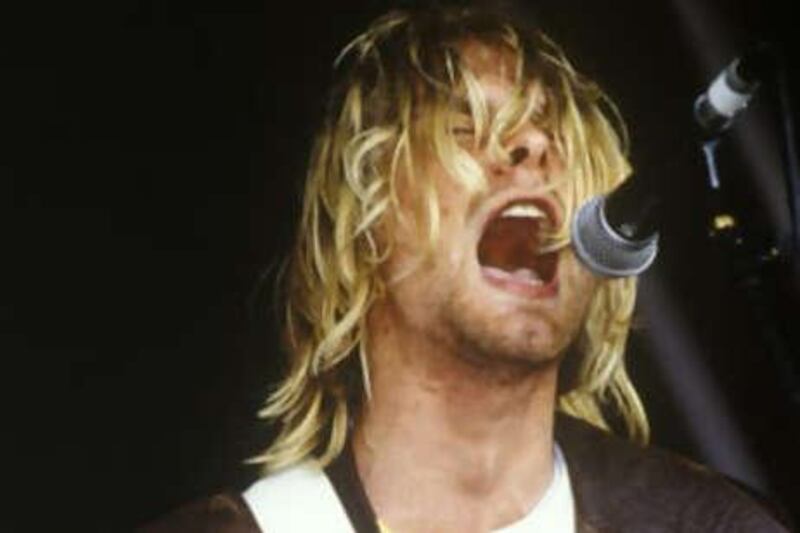In mid 1991 I was invited to accompany some like-minded friends to the annual Reading Rock Festival. The event takes place, as the name suggests, in the otherwise unspectacular satellite town of Reading, 50 miles outside London, a stone's throw from the Royal residences at Windsor. Reading attracts a younger and perhaps less jaded crowd than Britain's other rock festivals, moved less by the otherworldly, experiential nature of a mass gathering, but still entranced by the raw power of rock'n'roll at its finest.
Hence I found myself stealing across the bordering railway tracks in the dead of night - our party only having the requisite funds for half our number - and setting up camp, ready for a weekend of R.A.W.K. In truth, we'd all attended principally for the Friday line-up, which, barring a couple of token native additions, was exclusively devoted to US heavy rock. This promised sweet release from the fey, whimsical musings which dominated the UK music scene at the time. American bands were exotic, serious and most of all, loud. By mid-afternoon the crowd was suitably primed by the openers Babes in Toyland and Silverfish and excitement levels were stoked when the Seattle three-piece Nirvana took to the stage.
Although not an unknown quantity in the UK - the band's 1989 debut album Bleach attracted much critical praise - they carried none of the mystique and myth that history has subsequently ladled upon them. Yet over the following hour, a palpable wave of recognition swept the throng, as we bore witness to a frenzied statement of intent: howling three-minute barrages of punk-fuelled rage tearing into the air, Marshall stacks creaking and roadies scurrying. Nirvana meant it. Festival goers cooed and winked and nodded at one another, collectively acknowledging something special. The Bleach repertoire was doled out through a wall of noise, alongside a few numbers from the yet-to-be-released second album, including Smells Like Teen Spirit. This band were clearly far too loud and angry to be scheduled so early. As the crowd surged, missiles flew and contemporaries gasped (the introverted UK "shoegazers" Chapterhouse had the unenviable task of following Nirvana), the band, led by Kurt Cobain, ended the set by hurling their guitars in the air and left the stage, speakers overturned, drum kits trashed amid screaming feedback. Their legend had been firmly established.
The rest of the day played out according to the script, Dinosaur Jr, Sonic Youth and Iggy Pop in turn ensured a continuing enchantment. But the festival fell away after that and by the middle of the Sunday afternoon, I decided to head to the exits. One month later Nevermind was released and by January 1992 it had become the band's first number one album, replacing Michael Jackson at the top of the Billboard charts and selling approximately 300,000 copies a week (over 26 million copies to date).
The following year, Nirvana came back to play at Reading, headlining the main stage as the biggest rock band on earth.





